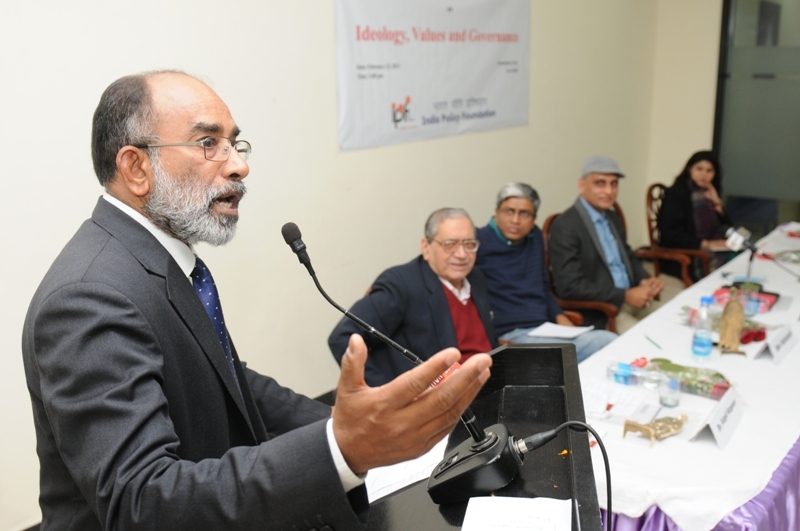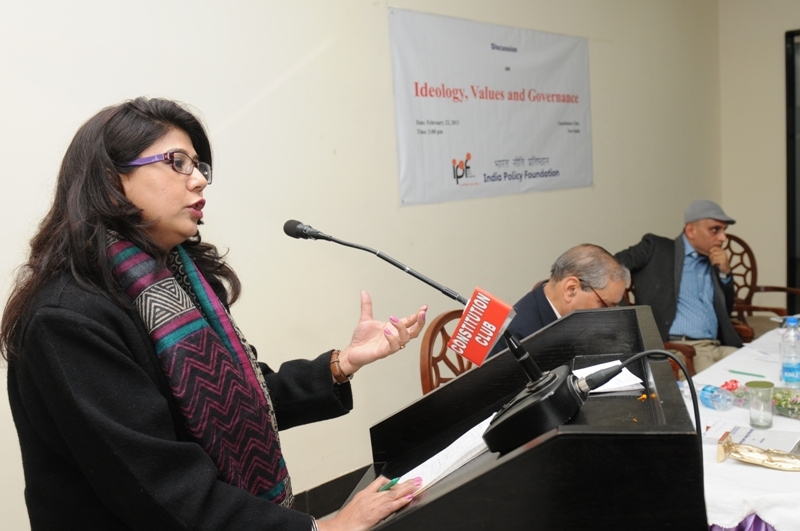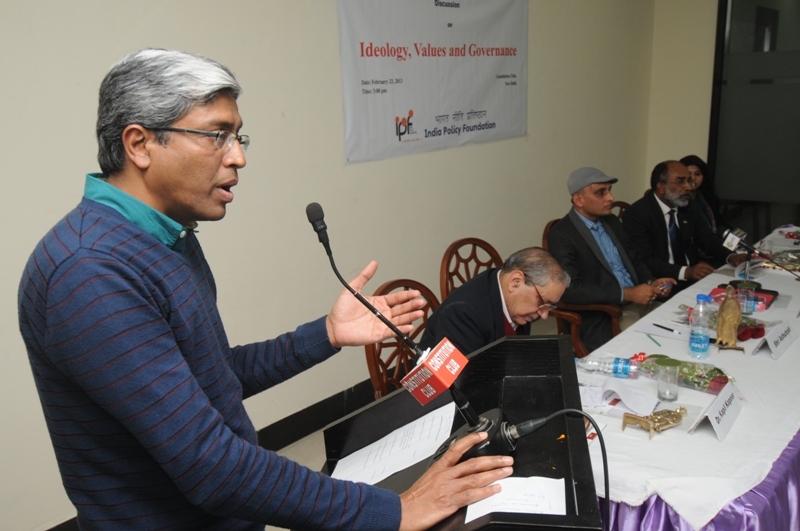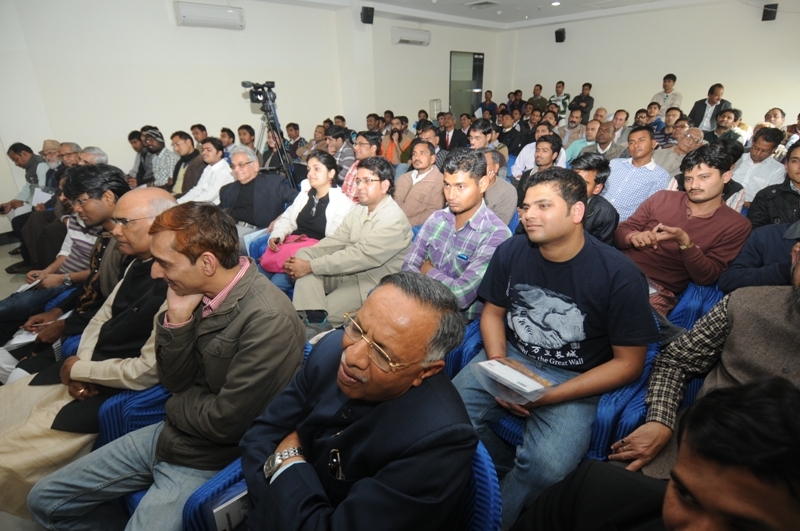Ideology, Values and Governance
Total Views |
February 23, 2013, Constitution Club, New Delhi
Main Speaker: Sh. K J Alphons, Former Bureaucrat and Socio-Political Activist
Chief Guest: Prof. Kapil Kapoor, Chairperson of IPF
Guest of Honour: Sh Ashutosh, Managing Editor, IBN7
Chair: Prof. Rekha Saxena, Department of Political Science, University of Delhi

One can memorize a library of books on ideology but that does not make a man sincere to any of them. But if someone takes one single idea, makes that his or her life and is ready to sacrifice everything for the sake of that idea, one can do things that the world would never have even imagined. This is what Vivekananda, the firebrand yogi thought about ideology. Something similar to this came out as a substance in the brainstorming session on ‘Ideology, Values and Governance’ organized by India Policy Foundation on February 2013.

Prof. Kapil Kapoor expressing his views on this subject said ideology is same with values of life. In micro level value or morality is what that makes us human. In macro level the same value system comes to be known as Ideology. Ideology is always contemporary as it is deeply linked with fundamentals of truth. Coming to the relationship of ideology, politics and governance, he observed that political thoughts of Chanakya are still relevant in making state responsible for the welfare of the people. Absence of ideology of welfare state is the reason behind the shift in priorities of modern state.

Delivering the keynote address, Shri Alphons said, “For me, doing honestly what I am supposed to do is ideology.” Shri Alphons stressed on the indomitable strength that every common man has within and said “anyone can do what he or she wishes to do. The only thing that is required is commitment”.
Shri Ashutosh brought into light the organizational side of ideological clusters. Ideologies create identities and this eventually helps people to bind together which is otherwise a very difficult task. Shri Ashutosh maintained that ideologies are product of specific time and space and can be best understood in that context.

There were also discussions over the ‘end of ideology’ proposition of Denial Bell and ‘end of history’ conjuncture of Francis Fukuyama.
Prof. Rekha Saxena spoke about India's distinct political hallmark what Gordon White and Mark Robinson have recently theorized as ‘democratic developmental state’. Democratic developmental state differs on one hand, from developmental state in East Asia where democracy has been often sacrificed for capitalist development and, on the other, from Socialist and Communist states where liberal freedoms were sacrificed in pursuit of economic equality. India has persistently tried to pursue both liberty, equality, democracy and development. Despite some problems, it has reasonably succeeded.
Prof. Rakesh Sinha spoke about clashes of ideologies in present time. Globalization is threatening vulnerable cultures and societies and is just old wine of colonialism in a new bottle. India has always acknowledged the choice of being different.